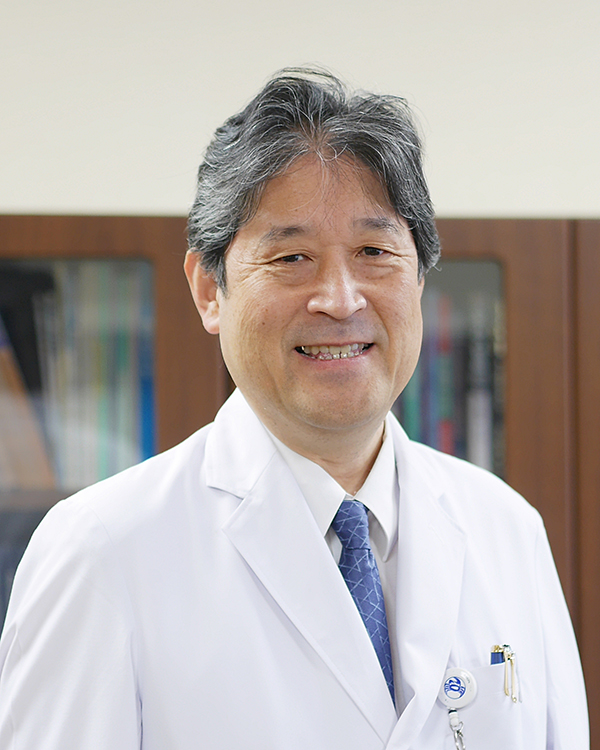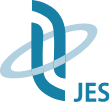Call for Abstracts
Please download the abstract submission form at the bottom of the page and send the completed form to endai-78jes@convention.co.jp by E-mail.
Greetings

Masayuki Watanabe, M.D., Ph.D.
Congress President of the 78th Annual Meeting of the Japan Esophageal Society
(Deputy Hospital Director and Department Director, Gastroenterological Surgery,
Cancer Institute Hospital of Japanese Foundation for Cancer Research)
I was appointed Congress President of the 78th Annual Meeting of the Japan Esophageal Society, held from Thursday, July 4, through Friday, July 5, 2024, at the Station Conference Tokyo. I am honored with this opportunity.
The theme of the meeting is ‘Paradigm shift, learn from the past, open up the future.’ Diagnosis and treatment of esophageal diseases have been dramatically changed over the decades.
In benign esophageal disorders, understanding the pathogenesis of each disease has progressed owing to the development of diagnostic tools. Also, treatment strategy has moved from surgery to less invasive, non-surgical treatment, such as endoscopic procedures. In esophageal malignancies, adenocarcinoma of the Barrett’s esophagus and esophagogastric junction adenocarcinoma have been increasing, in addition to the predominant histology of squamous cell carcinoma in Japan. Elderly patients who cannot undergo standard treatment are growing as the population ages.
Non-surgical treatment for early staged esophageal cancer has been widely spreading. At the same time, a multidisciplinary strategy with intensified regimens, such as DCF followed by surgery, has been developed for locally advanced cancer. Minimally invasive surgery, including thoraco-laparoscopic and robotic surgeries, became the mainstay of esophagectomy. The efficacy of immune checkpoint inhibitors in esophageal cancer has been proven, and they contribute to improving the outcomes of patients with advanced or recurrent diseases. Novel targeting therapies based on genomic technologies are awaiting. Improvement of quality of life and support for cancer survivors have become alternative goals of esophageal cancer treatment.
Novel diagnostic and treatment technologies are based on the accumulation of knowledge and challenges by predecessors. In this congress, we hope to learn the history of diagnosis and treatment for esophageal diseases and discuss what we have to hand on to the next generation and how novel technologies will change the future.
We are sincerely looking forward to meeting you all in Tokyo.
Congress Information
| Congress | The 78th Annual Meeting of The Japan Esophageal Society |
|---|---|
| Date | July 4 (Thu.) – July 5 (Fri.) ,2024 |
| Venue | Station Conference Tokyo Sapia Tower 4-6F, 1-7-12 Marunouchi, Chiyoda-ku, Tokyo *Directly connected to the Nihonbashi Exit of JR Tokyo Station |
| Congress President | Masayuki Watanabe (Director of the Esophageal Cancer Division, Department of Gastroenterological Surgery, Cancer Institute Hospital of JFCR) |
| Congress Theme | Paradigm shift – Learn from the past, open up the future |
| Congress Secretariat | Japan Convention Services, Inc. 14th floor Daido Seimei Kasumigaseki Bldg. 1-4-2, Kasumigaseki,Chiyoda-ku, Tokyo 100-0013, Japan E-mail: jes78@convention.co.jp |
Abstract Submission Period
| December 6 (Wed.) – | |
| The call for abstracts has closed. |
Presentation Style and Categories
Scientific Program:Scientific Program (English Session)
- Oral Session(including video presentation)
- Poster Session: Paper style (with oral presentation)
The presentation style and categories will finally be left to the Congress President
Categories
Basic science
| 1 | Anatomy & Physiology |
|---|---|
| 2 | Experimental studies |
| 3 | Others |
Benign Esophageal Diseases
| 1 | Congenital Diseases |
|---|---|
| 2 | Esophageal hiatal hernia |
| 3 | Esophageal diverticulum |
| 4 | Esophageal foreign body |
| 5 | Spontaneous esophageal rupture |
| 6 | Trauma |
| 7 | Eosinophilic esophagitis |
| 8 | Esophagitis/esophageal ulcer |
| 9 | Barrett’s esophagus |
| 10 | Benign esophageal stricture (including postoperative stricture) |
| 11 | Achalasia |
| 12 | Esophageal varices |
| 13 | Esophageal motility dysfunction |
| 14 | Pathology |
| 15 | Experimental studies |
| 16 | Others |
Malignant Esophageal Diseases
| 1 | Diagnosis- Esophagography, endoscopy, ultrasonography, CT, PET, etc. |
|---|---|
| 2 | Diagnosis- Barrett’s esophageal cancer |
| 3 | Diagnosis- Others |
| 4 | Treatment- Surgery (resection/reconstruction, Open) |
| 5 | Treatment- Surgery (lymph node dissection, Open) |
| 6 | Treatment- Minimally invasive surgery (thoracoscopic, laparoscopic, mediastinoscopic, robot, etc.) |
| 7 | Treatment- Endoscopic treatment (EMR, ESD, PDT, etc.) |
| 8 | Treatment- Chemotherapy |
| 9 | Treatment- Radiation therapy |
| 10 | Treatment- Chemoradiotherapy |
| 11 | Treatment- Multidisciplinary treatment |
| 12 | Treatment- Esophageal Stent |
| 13 | Treatment- Gene therapy/vaccine therapy |
| 14 | Treatment- Multidisciplinary support care team |
| 15 | Treatment- Palliative care |
| 16 | Treatment- Nutritional management, NST |
| 17 | Treatment- Rehabilitation |
| 18 | Treatment- Others |
| 19 | Pathology |
| 20 | Molecular Biology |
| 21 | Epidemiology/Statistics |
| 22 | Experimental studies |
| 23 | Others |
English Session
Symposium 1: Treatment strategy aiming for esophagus preservation in patients with esophageal cancer
Definitive chemoradiotherapy is curative intent treatment for esophageal cancer. Recently, regimens with possible high treatment effects, such as DCF and ICI combination, have been introduced in clinical practice. In patients with rectal cancer, the ‘watch and wait’ strategy based on the effect of neoadjuvant CRT or TNT attracts attention. An esophagus-preserving strategy may provide better QOL for esophageal cancer patients. In this session, please discuss the current situation of the esophagus-preserving treatment strategy for esophageal cancer.
Panel Discussion 3: Treatment selection and outcomes for GERD
GERD treatment modalities became diversified due to the development of novel drugs and modalities. In Japan, new guidelines for GERD treatment were published in 2021, and endoscopic submucosal dissection for GERD was approved by the National Insurance System in 2022. Also, several kinds of minimally invasive surgery have been reported for patients with refractory GERD. In this session, please demonstrate the advantages and disadvantages of each modality and discuss future direction.
Number of words
Language for abstract, presentation and presentation slides: English
Title: Approximately up to 15 words including spaces (80 characters)
Abstract: Approximately up to 300-400 words including spaces (2,200 characters)
Selection of abstracts
Submitted abstracts will be peer-reviewed, and acceptance and presentation style will be decided by the Program President. Notification of accepted abstracts will be sent to authors by e-mail.
Abstract Submission Form
Please download the abstract submission form and send the completed form to endai-78jes@convention.co.jp by E-mail.
Inquiries for call for abstracts
Congress Secretariat
Japan Convention Services, Inc
E mail endai-78jes@convention.co.jp

